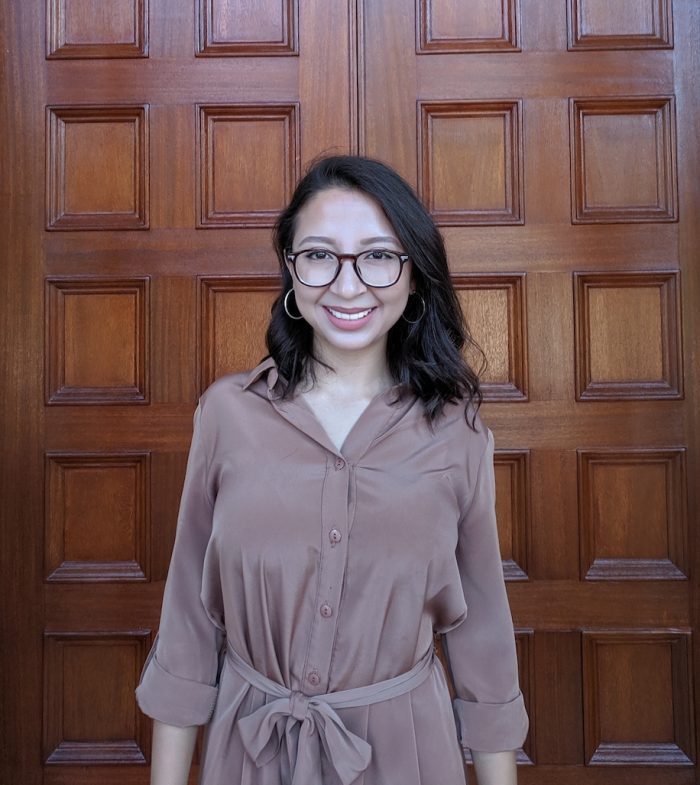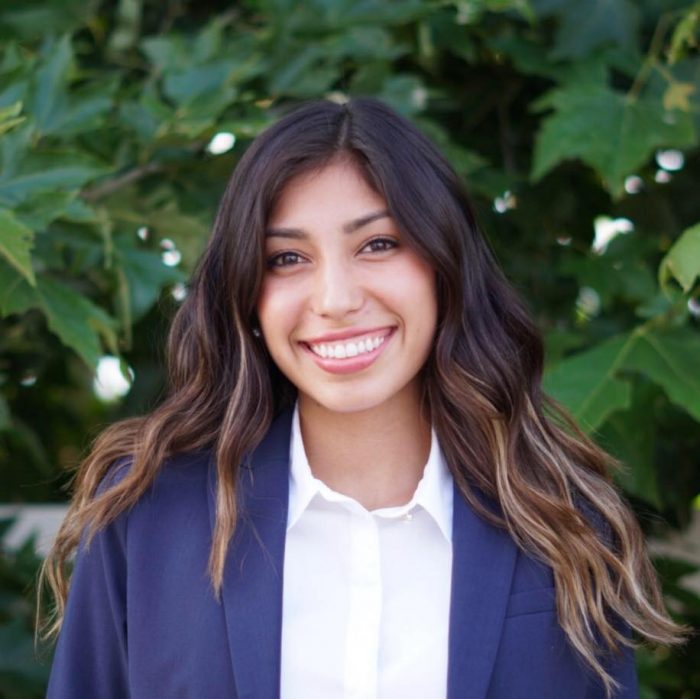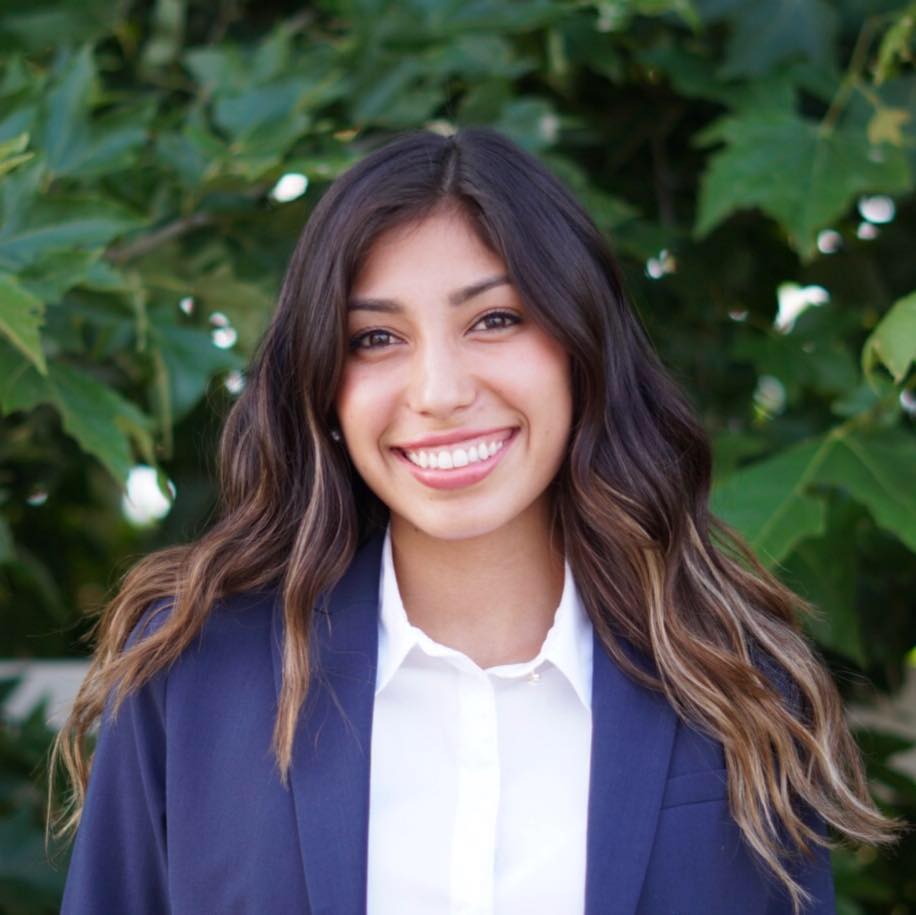Karla Tlatelpa and Leilani Gutierrez-Palominos, UC Berkeley graduates who majored in Molecular and Cell Biology and minored in Global Poverty & Practice, have recently been admitted to the David Geffen School of Medicine at UCLA. They are attending UCLA’s Program in Medical Education-Leadership and Advocacy (PRIME-LA), which enables students to focus on underserved communities. Tlatelpa and Gutierrez-Palominos are both first generation college Latinx women who have defied odds and pushed through barriers to get to where they are now. The Blum Center reached out to Tlatelpa and Gutierrez-Palominos to ask how the Global Poverty & Practice minor helped shape their understanding of and participation in the medical field.

What inspired you to join the Global Poverty & Practice minor?
Leilani Gutierrez-Palominos: I wanted to apply a critical social lens to my understanding of poverty and inequality. I have experienced poverty on a downstream level, but I wanted to learn what upstream factors caused the poverty I had witnessed. My existence in this country, as a previously undocumented immigrant, is inherently political. Thus, I am personally invested in advocacy efforts regarding underserved communities. My clinical and personal experiences have shown me patients’ desire to feel represented and understood, both through language and culture. In addition to having my background drive my passion for addressing inequalities, minoring in GPP provided me with the historical, political, and economic knowledge necessary to analyze and address systemic forces contributing to poverty.
Karla Tlatelpa: Growing up, my family experienced many injustices that, at the time, I thought were only happening to us. As I grew older and learned more about the systems in which we live, I began to understand that our circumstances were not isolated and were part of systemic problems that other families like mine were experiencing. We were a low-income family of undocumented immigrants, so my parents worked two to three jobs at a time to keep us economically afloat. From the ages of 7 to 15, I worked 12-hour days with my grandma on weekends selling candy at the Oakland Coliseum flea market to help contribute to our food budget, especially since being undocumented meant we did not have access to social services like SNAP. With limited access to health care due to a lack of health insurance, my family’s health problems would sometimes go unattended. As I entered UC Berkeley, I wanted to gain a framework that would help me understand the disparities families like mine experience as a result of limited economic and social rights. On orientation day, I came across a student tabling for the Global Poverty & Practice minor and was immediately hooked!

How has the GPP minor changed your perspective on the field of medicine, if at all?
Gutierrez-Palominos: The GPP minor has made me more socially aware and fostered my sense of seeking to serve underserved populations. The minor has allowed me to delve deeper into wanting to understand upstream social determinants of health, which encouraged me to apply to the PRIME program at UCLA. I will be weaving an additional Master of Public Health year into my four years of medical education.
Tlatelpa: GPP helped me understand the role I will have as a physician beyond the clinical setting. I’ve always known that physicians are highly respected members of society, but GPP highlighted the extent of my privilege as a future physician. After GPP, my drive to study medicine shifted from a desire to help individuals in my community to also include a sense of responsibility to use the power and influence that being a MD provides to push for positive social change.
What lessons from GPP will you carry forward into your medical education and career?
Gutierrez-Palominos: Through the GPP minor, I considered the economical, social, and political dimensions involved around engaging in poverty work—which is relevant to my aspiration of providing care in low-income areas as a doctor. The GPP minor focuses on processes, such as the process of grappling with newfound concepts, which helped to further develop my critical thinking skills. Knowing that poverty doesn’t have a simple solution, I remained humble when engaging in poverty alleviation work since I always had to consider further implications, possibilities, and ways to improve. I became more conscientious of the decisions I made in ethical consumption, my support for certain organizations, and evaluating the effectiveness of certain methods/approaches when serving impoverished communities. Lessons of humility and critical thinking is what I will carry forward.
Tlatelpa: One of the greatest lessons GPP taught me was to always ensure I include the community’s voice in decision making that will affect them directly. As a medical student and eventually a physician, I will be regarded as an expert in many situations. However, I will take the teachings from GPP and my practice experience and remind myself and my colleagues that community members are the experts of their own lived experience and should always be included in the decision making process.
What’s the most important thing people should know about you as a Latina entering the world of medicine?
Gutierrez-Palominos: My clinical and personal experiences have shown me patients’ desire to feel represented and understood, both through language and culture. Underrepresentation causes low-income Latino communities to mistrust the medical field and lack mentors they can seek for guidance. Thus, this encourages me to gain more representation for my community and underserved communities like the ones I come from. There are few Latinas in medicine; at UCLA medical school I am not only representing myself, but a greater community—both the village it took to continuously support me on this journey and those who will come after me.
Tlatelpa: There are few Latinx in medicine; this field is certainly not representative of the general population. This meant that when my family had health insurance, we did not usually have medical providers who shared our language or culture. Being a Latina in medicine means that I will have the unique opportunity of improving health outcomes in the Latinx community and relate to my patients in the way my family would have liked to with our own physicians.
What do you hope to accomplish for yourself, your family, your community, or the great world in becoming a doctor?
Gutierrez-Palominos: I hope to have the agency to help in situations where a medical professional is desperately needed. For example, experiencing death and disease in my own family that could have been prevented had there been a doctor. I want to be an advocate for my community and give back to low-income areas like the ones I come from. Due to my background, my ultimate goal is to work in under-resourced global communities involving poor migrants.
Tlatelpa: In the future, I see myself working as a primary care physician in under-resourced, largely Latinx communities. I also see myself working at the policy level to increase access to healthcare for everyone, including undocumented and socioeconomically disadvantaged folks. As part of the Program in Medical Education-Leadership & Advocacy (PRIME-LA) at UCLA, I will take time off from medical school to pursue a Master’s degree in public policy. Through this additional training, I hope to gain the tools necessary to advocate effectively for my patients’ economic and social rights and to carry out policy work that may institutionalize protection for under-resourced communities to access care and other vital social services. As a physician, my voice will carry more weight and increase the impact I could have at the policy level to create changes that will positively affect people beyond those I can reach during individual consultations.
